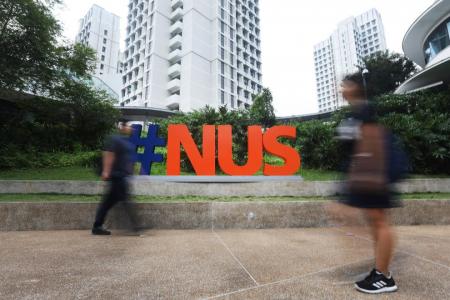NUS group’s rope-bondage event cancelled after backlash
Petition accuses student group of promoting violent sexual fantasies, while group claims its members were doxxed
In Japan, it is known as shibari and is regarded as an erotic art form. But when a student interest group at the National University of Singapore (NUS) organised a rope-bondage event, it sparked a backlash.
The 90-minute event, which was scheduled to be held virtually over video-conferencing tool Zoom last night, was cancelled amid accusations that it promoted extreme and violent sexual fantasies.
In turn, the organisers, tFreedom from the NUS residential hall Tembusu College, alleged that its members had been doxxed, which prompted the cancellation of the event.
tFreedom is described on the Tembusu College website as an LGBTQIA+-affirming community that aims to build a more diverse and inclusive college.
It organises events to advocate and educate on matters regarding gender and sexuality, fostering greater awareness and understanding such issues.
In consensual rope bondage, willing participants are restrained in various positions as an act by itself or as part of having sex.
The cancelled session was part of tFreedom's event series Let's Talk About Sex (LTAS), which aims to provide room for open discussion to destigmatise sex as taboo.
A couple who practise consensual rope bondage from 0101 Studio were invited to share how it allows them to explore their sensuality and "express creativity".
The invitation said it was "open to all, from practised rigger to the simply curious".
Change.org user Hope Leow then started a petition titled "Stop Promoting Violent Sex at NUS" last Saturday, which had more than 7,700 signatures as of last night.
The petition claims tFreedom promotes "loose sexual behaviour" and its events serve to stimulate sexual fantasies.
It also included links to the tFreedom chats and details of those linked to 0101 Studio.
In a statement posted on its Facebook page on Monday, tFreedom said the petition had mischaracterised the event, and claims that it promoted violent sexual fantasies among students were false.
SAFE SPACE
The group said the event was meant to provide students a safe space to learn about the lesser-known practice.
"The event was in no way aimed at encouraging or promoting the practice," it said.
"The event was to be online on Zoom with zero physical contact, and the sign-up process was on a completely voluntary basis."
tFreedom said it stood by its original intentions, and that respect and consent were at the heart of what the group does.
tFreedom also said it was alarmed by the petition exposing the personal details of its members and members of the studio, and it had cancelled the event to protect the privacy and mental health of those affected.
Publishing someone's personal details to cause harassment, alarm or distress, known as doxxing, is an offence.
First-time offenders can be jailed for up to six months and/or fined up to $5,000.
The maximum penalties are doubled for repeat offenders.
Clinical psychologist Carol Balhetchet, who works closely with the youth, said it was important for young adults to understand and be educated about sex.
But she said bondage practices border on abuse and may flavour discussions negatively.
"Bondage is still considered an extreme sexual experience, and while sexuality needs to be discussed, it mustn't go to extremes," she said.
"There is clearly a risk of young people trying it out when they are exposed to it."
For young people, there are greater risks of a bondage session going wrong, she added.
"In bondage, one person is a submissive, giving up control. But what happens when that person wants to stop, but the other is high on control?"
ON HIATUS
In a note sent to students on Tuesday, Associate Professor Kelvin Pang, Master for Tembusu College, said tFreedom's operations will be put on hiatus while the school looks into the alignment of its activities with Tembusu College's Code of Gender and Sexual Respect.
"Our goal is to strike a better balance between enabling student-initiated activities and discussions, while ensuring that these events are still educationally sound and contribute to the positive growth of our community," he said.
"The cancellation was also necessary to protect the privacy and well-being of our students, as their personal details had been disclosed online."
Get The New Paper on your phone with the free TNP app. Download from the Apple App Store or Google Play Store now



